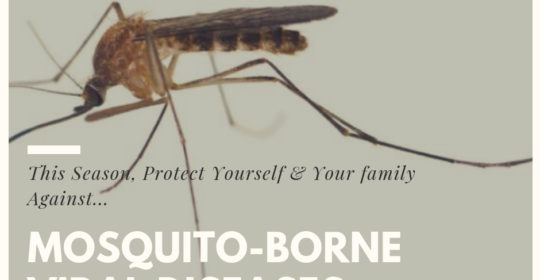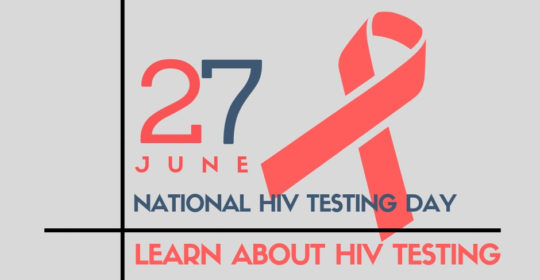
Health Alert
- Home
- Health Alert
-
DECEMBER 8, 2019
- 0 COMMENTS

-
-
NOVEMBER 12, 2019
- 0 COMMENTS

Pneumonia Can Be Prevented – World Pneumonia Day
World Pneumonia Day is observed each year on November 12th. Globally, pneumonia kills nearly 1 million children younger than 5 years old each year. This is greater than the number of deaths from any infectious disease, such as HIV infection, malaria, or tuberculosis. Each year in the United States, more than 250,000 people have to seekRead more- swifdev
- Cough,
- Fatigue,
- Fever,
- Flu,
- Health Alert
-
-
SEPTEMBER 23, 2019
- 0 COMMENTS

10 Questions to Help You Learn Your Chance of Getting a Fungal Infection
Fungal Disease Awareness Week is September 23–27, 2019. Fungal diseases can affect anyone. Most fungi are not dangerous, but some types can be harmful to health. Learning about them can help you and your doctor recognize the symptoms of a fungal disease early and may help prevent serious complications. About Fungal Diseases Fungi are everywhere. ThereRead more-
-
SEPTEMBER 8, 2019
- 0 COMMENTS

STD Risk and Oral Sex
Many sexually transmitted diseases (STDs) can be spread through oral sex. Using a condom, dental dam or other barrier method each and every time you have oral sex can reduce the risk of giving or getting an STD. Although oral sex may carry a lower risk for spreading HIV than other forms of sex, repeated unprotected exposuresRead more- swifdev
- AIDS,
- Health Alert,
- HPV,
- STD
-
-
AUGUST 25, 2019
- 0 COMMENTS

E-cigarettes and Youth: What Parents Need to Know
Electronic cigarettes (e-cigarettes) are battery-powered devices that deliver nicotine, flavorings, and other ingredients to the user. Using e-cigarettes is sometimes called “vaping.” E-cigarettes do not create harmless “water vapor” – they create an aerosol that can contain harmful chemicals. HOW MANY YOUTH ARE USING E-CIGARETTES? E-cigarettes have been the most commonly used tobacco product amongRead more- swifdev
- Health Alert
-
-
JULY 7, 2019
- 0 COMMENTS

Protect Against Mosquito-Borne Viral Diseases This Season
According to Georgia Department of Public Health (DPH) several mosquito-borne viruses circulate in Georgia each year and are capable of causing disease in humans and other animals. The most common mosquito-borne viruses in Georgia include West Nile virus, Eastern Equine encephalitis virus, and LaCrosse virus. Mosquito-borne viruses are most active late spring through early fall inRead more- swifdev
- Fever,
- Headache,
- Health Alert
-
-
JUNE 26, 2019
- 0 COMMENTS

National HIV Testing Day
National HIV Testing Day (NHTD) was first observed on June 27, 1995. NHTD is a day to encourage people to get tested for HIV, know their status, and get linked to care and treatment. CDC recommends that everyone between the ages of 13 and 64 get tested for HIV at least once as part of routineRead more- swifdev
- AIDS,
- Health Alert,
- STD
-
-
JUNE 16, 2019
- 0 COMMENTS

National Aphasia Awareness Month
What is Aphasia? Aphasia is a disorder that results from damage to portions of the brain that are responsible for language. For most people, these areas are on the left side of the brain. Aphasia usually occurs suddenly, often following a stroke or head injury, but it may also develop slowly, as the result ofRead more- swifdev
- Health Alert
-
-
MAY 11, 2019
- 0 COMMENTS

Lyme disease: What you need to know
What is Lyme Disease? Lyme disease is an infection caused by the corkscrew-shaped bacterium, Borrelia burgdorferi, which is spread to people through the bite of several types of blacklegged ticks. Where People Most Commonly get Lyme Disease ? In the United States, most infections occur in the following areas: Eastern states, primarily New England and theRead more- swifdev
- Fatigue,
- Fever,
- Headache,
- Health Alert,
- Health Tips,
- Skin rash
-
-
APRIL 20, 2019
- 0 COMMENTS

GYT: Get Yourself Tested
GYT: Get Yourself Tested is a campaign encouraging young people to get tested and treated for STDs and HIV to protect their health and that of their partners. STDs affect people of all ages, yet these diseases take a particularly heavy toll on young people. Know the Facts. False assumptions about STDs – how they’reRead more- swifdev
- AIDS,
- Health Alert,
- STD
-
Categories
- AIDS
- Alcohol Abuse
- Arthritis
- Asthma
- Breast Cancer
- Chest Pain
- Conditions
- Cough
- COVID-19
- Diabetes
- Diarrhea
- Drug Abuse
- Eating Disorder
- Fatigue
- Fever
- Flu
- General
- Headache
- Health
- Health Alert
- Health Tips
- High Cholesterol
- HPV
- Hypertension
- Injury
- Irritable Bowel Syndrome
- Kidney Health
- News
- News & Events
- Pediatric Clinic
- Skin rash
- STD
- Uncategorized
- Zika
- STD Risk and Oral Sex 4419 September 8, 2019
- What You Need to Know About Chest Pain 3822 March 6, 2016
- COVID-19 in Children and Teens 3128 September 24, 2020
- Sexual Transmitted Diseases (STDs) 2903 February 2, 2018
- Shop Smart— Get the Facts on the New Food Labels 2806 March 20, 2020
Photostream
Archives
- February 2022
- December 2021
- October 2021
- November 2020
- October 2020
- September 2020
- August 2020
- July 2020
- May 2020
- April 2020
- March 2020
- February 2020
- January 2020
- December 2019
- November 2019
- October 2019
- September 2019
- August 2019
- July 2019
- June 2019
- May 2019
- April 2019
- March 2019
- February 2019
- January 2019
- December 2018
- November 2018
- October 2018
- September 2018
- August 2018
- July 2018
- June 2018
- May 2018
- April 2018
- March 2018
- February 2018
- January 2018
- December 2017
- May 2017
- July 2016
- June 2016
- May 2016
- April 2016
- March 2016
- February 2016
- January 2016
- December 2015
- November 2015
- October 2015
- September 2015
- July 2015
- October 2014
Tags
Make An Appointment
- 2702 Memory Lane
Chicago, IL 60605 - Online Booking:
[email protected] - Facebook:
facebook.com/medicenter - Twitter:
twitter.com/medicenter
Being in control of your life and having realistic expectations about your day-to-day challenges are the keys to stress management.
— Josh Billings
© 2022 Swift Health Urgent Care Atlanta | Privacy Policy | Sitemap


Most Commented